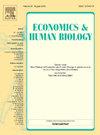辅助生殖技术使用和融资的公平性:收入重要吗?
IF 1.8
3区 医学
Q2 ECONOMICS
引用次数: 0
摘要
这项研究估计了澳大利亚辅助生殖技术(ART)这一使用频率相对较低且价格昂贵的保健服务的不平等,尽管如此,它仍具有与健康和福祉相关的后果。虽然全民医疗保健系统提供回扣,但2010年引入了一项货币上限政策,从而增加了消费者的共同支付额。这些政府共同融资决策包括在为富人提供抗逆转录病毒治疗补贴和优先为低收入家庭提供保险之间做出权衡。这些决定需要仔细考虑,因为它们可能对公平产生深远影响。本研究利用政策变化前(2006年、2009年)和政策变化后(2012年)的相关行政数据,得出了有关抗逆转录病毒药物使用和融资不平等的经验证据。结果表明,在抗逆转录病毒治疗的使用中存在有利于富人的不平等,这减少了政策变化后的抗逆转录病毒治疗的融资在政策变化前的2009年是递减的,而在政策变化后的2009年是递减的。本文章由计算机程序翻译,如有差异,请以英文原文为准。
Equity in use and financing of assisted reproductive technologies: Does income matter?
This study estimates inequity for a relatively low frequency-of-use and expensive health service, Assisted Reproductive Technology (ART) in Australia, that nevertheless has health and well-being related consequences. Although the universal healthcare system provides rebates, a policy to put a monetary cap was introduced in 2010, thereby increasing the co-payments for consumers. These government co-financing decisions include a trade-off between subsidising ART for the wealthy and prioritising insurance for low-income households. Such decisions require careful consideration since they may have profound equity implications. This study produces empirical evidence on inequity in the use and financing of ARTs, using linked administrative data from the years before the policy change, 2006, 2009 and after the policy change, 2012. The results indicate that there is pro-rich inequity in the use of ARTs, which decreases post-policy change and the financing of ART is regressive for the year 2009 pre-policy change and is less regressive after the policy change.
求助全文
通过发布文献求助,成功后即可免费获取论文全文。
去求助
来源期刊

Economics & Human Biology
医学-公共卫生、环境卫生与职业卫生
CiteScore
4.50
自引率
12.00%
发文量
85
审稿时长
61 days
期刊介绍:
Economics and Human Biology is devoted to the exploration of the effect of socio-economic processes on human beings as biological organisms. Research covered in this (quarterly) interdisciplinary journal is not bound by temporal or geographic limitations.
 求助内容:
求助内容: 应助结果提醒方式:
应助结果提醒方式:


